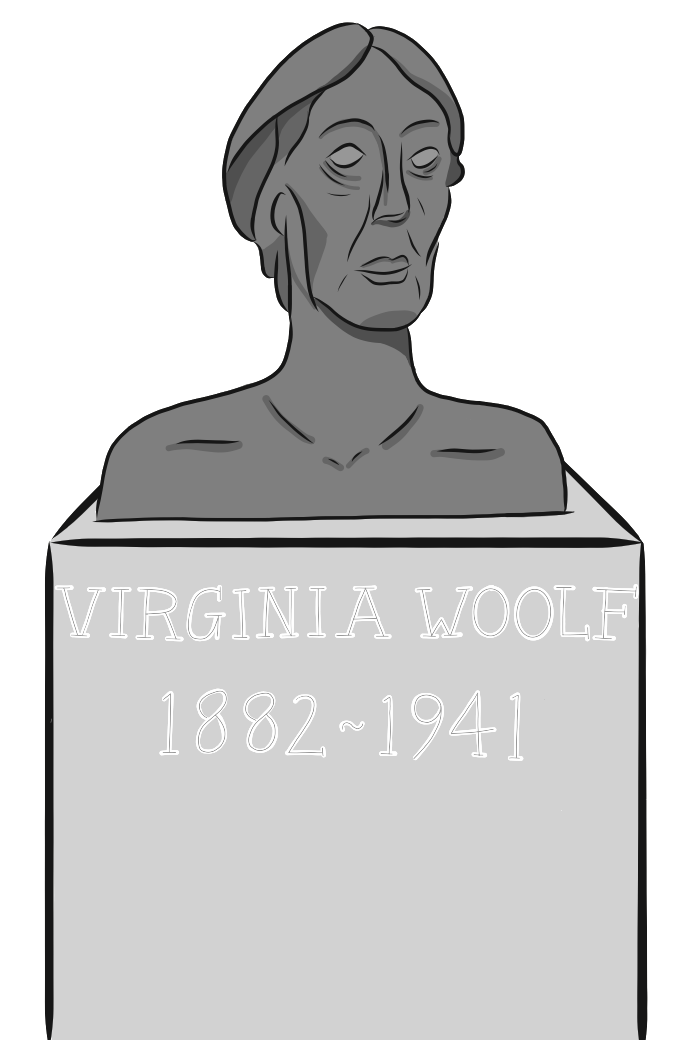

It’s hard to say how
Virginia Woolf would have felt about her 137th birthday
being commemorated with
a line of chalk.
On 25th January, a passage from her novel
The Waves became a literal passage or pathway threading around her old haunts in Bloomsbury.
Woolf was a revolutionary.
She did not look to the past for answers but reshuffled history like a deck of cards.
Perhaps she would have seen this act of commemoration as too solid, too dictated by facts.
But I suppose she would have liked the way that this material that represents childhood is being used to denote great age. And also perhaps smiled at the way the ephemerality of a line of chalk, washed away with the next fall of rain, juxtaposes her relative immortality:
the legacy that has outlived her body.

Woolf cannot be forgotten
because she pre-empted
so many social movements
that have emerged
well-after her death.
She is a feminist icon, her essay
A Room of One’s Own still often drawn upon
to remind us of the lost ‘wreckages’ of women
who failed to be artists due to social pressures.
These, Woolf shows us, are the women
who do not exist now not because
they did not exist, but because they were disregarded and forgotten.
In recent years, Woolf’s ‘queerness’
has come into the limelight, with a film
coming out last year Vita and Virginia,
a fictional biopic of her affair with
the aristocratic gardener, Sackville-West.
Her novel Orlando has shuffled closer to
centre-stage of her works,
in its celebration of the inherent sameness
of all human beings under the performativity of gender and the ‘spirit of the age.’
in her Bloomsbury, January 25, 2020.



